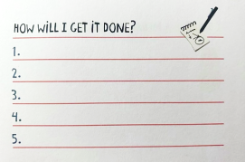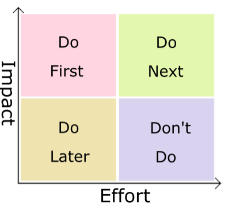Managing Your Time as a University Student
.png)
Hi, my name is Cláudia, I’m a first-year PhD student at Science Engineering Programme at UCC and Tyndall National Institute. Let me start by congratulating this amazing blog. I wish I had similar resources when I was coming into college, or even during my master. Having our peers sharing first-hand stories and pass on their experiences is a learning opportunity that might be useful one day.
There are a bunch of valuable tips and advice I would love to know before I started my academic journey. I realized that, as you go and you level up, new challenges will come along. Therefore, you need to be ready to adapt and learn from your mistakes or, if you have the chance, from this blog. This post is about time management, and how did I go from a natural procrastinator to that person with full agenda but still has the time for herself.
Managing my time is something I have been struggling with for a while until I found a strategy that works for me. Especially during the Covid, it became extra difficult to separate work from private life, along with lack of motivation. Thus, if you are a person that whish your days had more than 24h, if you can’t separate your personal life from your work and you spend hours on random stuff, this post is for you.
When people feel stressed out, frustrated and overwhelmed with work we have this tendency to overload ourselves in work. From a personal experience, working extra hours or over the weekends doesn’t make you more productive or effective. Contrarily, you will end up exhausted, and consequently incapable of achieving your goals, leading to frustration. This is a toxic cycle that we urgently need to learn how to break, starting by taking time to rest. Sometimes taking a step back can be beneficial in order to move forward. Anything in life is made of balance and all the things in excess can be harmful. Always respect the signals your body and mind send to you when it is time to slow down and take care of yourself.
As a PhD student, I need to work towards the development of my project, attend classes and extra academic-related tasks. Besides this, I like to do sports, knitting, hang out with friends, and watch Netflix. Due to my non-systematic and disorganization methods, I would often steal sleeping hours to do all I wished. This impacted negatively my productivity and focus. You need to find the drive to shift these behaviours. Bellow, I share with you what has been working for me.
Calendar App

Use the calendar app to synchronize all your emails and events, so you have a complete calendar in one space. The best thing about it is the reminders of upcoming events. You can schedule a notification, e.g. 15 minutes before a meeting and 1 week before a deadline. Plus, you can create your own events and schedule your day at your convenience. I do that on my phone, and I consider it a must-have since I always have the phone by my side.
Weekly Planner

As human beings we love routines. Therefore, to keep me on track I created a new ritual for my week. Every Monday morning, I take 5minutes to open my weekly planner and write down my meetings (according to the calendar), deadlines or whatever I have scheduled, respecting my personal time. I would suggest keeping it in a place where you can easily give it a glace, either your desk or a corkboard, for example. Weekly organizing gives you the freedom and flexibility to plan new and unexpected events. I strongly recommend investing in a week planer, it was game-changing for me.
Bullet Points

To follow up your task create realistic and daily bullet points. For example, instead of writing “finish the essay” as a goal for the end of the week, I will write “finish introduction section” for Monday. It’s important to be fair with yourself and set goals for the day that you know are possible to accomplish. Likewise, respect your tasks and do them one by one instead of trying to multitask. Regularly thinking about the next tasks reduces the quality of the task you have in your hands. Try to concentrate on one or two things at a time instead of ten.
Define your priorities
A problem that emerges now is: what to prioritise in work? This leads us to the fourth and final point. Defining priorities is relevant in a way that helps you not wasting time on irrelevant tasks, by targeting the ones that will help you achieving your goals and making the most of your day. For this exercise, The Priority Matrix can be particularly useful (see image below). To apply it you need to score your activities based on impact and effort, by answering “What impact does the task have?” and “How much effort will this task take?”, respectively. Once your most important tasks are identified, it’s crucial to have the courage to say no to the things that are less important to you.

Keep in mind that all days are different, and productivity can suffer alterations. Find motivation that will drive you towards your goals. Experiment and discover what are the right tools for you. Bear in mind this is all a process with no wrongs or rights, you do you.
There are three primary colours, yet their combinations allow an infinity of hues. In time management, there are a large variety of tools that can be used. Explore them and I’m sure you will find the perfect combination for you. Hope this post has been of any help, and somehow it will make your life easier from now on.
Cláudia
Skills Centre
Contact us
Q -1 (Q minus 1), UCC Boole Library,
